Becoming a parent is a transformative journey that you can’t quite grasp until it happens to you. It’s filled with joy, wonder, and a fair share of challenges. It’s also filled with well-intentioned but irritating advice like to sleep when the baby sleeps. How are you meant to do that when your newborn won’t sleep unless held?
The struggle is real, and you’re not alone. In this blog post, we’ll unravel the mystery of why your newborn won’t sleep unless held, and explore effective strategies on how to get your sweet baby to sleep without being held, cuddled or velcroed to you 24/7.
Make sure to check out my article on how to survive the first year of motherhood.
What you’ll learn:
Why won’t my newborn sleep without being held?
In the womb, your baby was always the right temperature, never hungry, soothed by your movements and always able to hear your heartbeat. That goes a long way with keeping your baby content!
Now that your newborn is in the big, bad world they’re learning to cope with bright lights, tummy gas, hunger, loud noises and Aunt Carol holding them in awkward positions.
It’s very normal for newborns to want to be held for sleep. This is where they feel safest and most secure.
Being in your arms (or on your chest) is as close to the womb as your baby is going to get. They’re comforted by your scent, can hear your heartbeat and voice which settles them and skin-to-skin contact is proven to regulate a newborn’s body temperature.
While I believe it’s important for new parents to take time to get to know their baby by lounging together for hours everyday on the sofa or babywearing, I know that it’s not practical when we have a list of things to get done.
My guide How to Get Your Baby to Sleep in a Bassinet has gentle and effective advice for getting your newborn to be ok sleeping outside of your arms.
Although it may feel like the odds are leaning toward “impossible”, I promise you that all newborns can learn to happily sleep in the bassinet.
My baby will only sleep on me. Why?
There are a few reasons why babies prefer to sleep on their parents’ chests.
First, as I just mentioned, your newborn loves being right next to you. Your voice, scent and heartbeat reassure them and help them relax enough to sleep.
Second, when your baby sleeps on your chest it means that they are sleeping on their tummy. This light pressure on their abdomen helps expel tummy gas (which can get painful for newborns) and aids digestion.
Next, newborns are born with the Moro reflex (also called the “startle reflex”). You see this reflex when your baby startles or shakes their arms when you place them down on their back. We’ve all been there right? You lower your sleeping newborn into the crib only for them to immediately startle awake.
Your newborn only wants to sleep on you because this means they’re sleeping on their tummy, which helps to dampen the Moro reflex. They can sleep longer and longer. (The Moro reflex naturally disappears after the first couple of months.)
The truth is that babies sleep better on their tummies and letting your baby sleep on your chest, while you’re awake, is totally fine. When your newborn is sleeping anywhere else, like the bassinet or crib, they must sleep on their back. This article explains why and the dangers of tummy sleeping.
Is it bad to hold your newborn while they sleep?
Some parents worry that holding their newborns while they sleep will lead to a baby that will never accept sleeping in a crib. Other parents feel trapped, unable to get anything done because their baby wants to “contact nap” all day long.
It’s very normal and natural to hold your newborn while they sleep. It can help to strengthen your bond, lower your stress levels and help establish breastfeeding. Holding your baby while they sleep as a newborn won’t lead to them not being able to sleep in a bassinet or crib, ever.
If you want to enjoy some skin-to-skin sessions or contact naps, go for it! You can do this while simultaneously working on building healthy sleep habits and a gentle schedule for your newborn.
If, on the other hand, you’re at the mercy of a baby who will only sleep in your arms or feeling like you’re trapped on the sofa several hours everyday so your baby can sleep, you’ll want to get this guide on getting your newborn to accept the bassinet.
There are safety issues we must address when having your newborn sleep on you. Most importantly, you must be AWAKE.
Babies that sleep outside of the bassinet or crib must be supervised to reduce the risk of SIDS or accidental death (which, sadly, continues to happen.) You must not be at risk of falling asleep. If you’re feeling drowsy, have another caregiver hold your baby or place them on their back in the crib.
Here is all the information you need to create a safe sleep space for your newborn.
My newborn won’t sleep on their back!
The AAP recommends that babies are always placed to sleep on their back. Many parents know this recommendation and try endlessly to get their newborns to accept the crib or bassinet, but they refuse. Every time they try to lay their babies in the bassinet, they wake up immediately and sometimes scream.
Why do so many newborns refuse to sleep on their back?
There are a few reasons why your newborn won’t sleep on their back. Firstly, this can trigger the Moro reflex causing your baby to startle awake. It’s like when you have that dream that you’re falling and startle yourself awake. No one wants that!
The best way to dampen or prevent the Moro reflex is to swaddle your newborn.
Swaddling not only mimics the comfort of the womb but it also keeps your newborn’s arms tucked in tightly, limiting the likelihood of a startle waking them from their peaceful slumber. Even if you’ve tried swaddling and gave up because you thought it looked uncomfortable or your baby didn’t seem to like it right away, I encourage you to give it another shot.
Swaddling has been proven to soothe babies, helping them to sleep longer and deeper. And best of all, swaddled newborns sleep longer and are more likely to accept sleeping in the crib or bassinet!
Check out my favorite newborn swaddles here.
Secondly, reflux. Reflux is similar to heartburn for adults. It’s when the contents from your baby’s stomach flow back up into their esophagus and throat. It burns and is really uncomfortable and is worsened by lying down flat. If you have ever had heartburn you can understand why this would disrupt your newborn’s sleep.
To help prevent discomfort from reflux, offer tummy time throughout the day. Just 5-10 minutes a few times a day will help to process and digest milk, and get rid of painful gas, to help reduce your baby’s reflux.
Keeping your baby upright for 15-30 minutes after feeds can also help reduce reflux pain.
For more tips on how to help your newborn sleep in the bassinet (even if they have reflux) check out this guide.
How to get your newborn to sleep without being held
So how do you actually get your newborn to sleep without being held, so they can accept the crib or bassinet?
There are ten proven steps for getting your newborn to sleep in a bassinet. You can learn all ten steps in this guide, which includes advice for babies with reflux, day/night confusion and more.
Warm the bassinet sheet
Your baby may be jolting awake when you place them in the bassinet because the sheet is cold! To prevent this, put a heating pad on low or warm the sheet up with a heavy blanket about 30 minutes before your baby goes into the bassinet.
Always check to ensure that the sheet isn’t too warm (if using a heating pad or hot water bottle). And always remove any loose blankets before your baby is placed in the bassinet.
This can help the transition from your warm body to the bassinet go much easier.
Position your baby correctly
If you’re placing your baby into the bassinet already asleep, make sure to lower their body down so their feet touch the bed first (rather than their head).
Going down “head first” can often cause your baby to startle awake when they touch the mattress.
Also, place your baby in the bassinet with their feet touching the bottom side (rather than right in the middle where they may not be able to touch any of the sides). When babies are able to feel the boundary of their bassinet, it gives them added security and helps them relax.
Start watching wake windows
Start keeping track of the amount of time your baby is awake between naps (called “wake windows.”) Encouraging your baby to nap every 30-90 minutes will help them fall asleep easier, sleep better and accept the bassinet.
You can learn all ten steps for getting your baby to sleep in the bassinet here.

What to do if your newborn won’t sleep in the bassinet?
It can be so frustrating when you’re trying everything, but your newborn won’t sleep in the bassinet.
Learning a new skill takes time and practice so make sure to give your newborn plenty of opportunities to get exposed to the bassinet. Remember to celebrate small wins. Even if just for a short nap, or they were awake and happy hanging out in the bassinet, these are all signs of progress.
Recruit family and friends to help out so you get the support and downtime you need. Baby wearing can help you get through the day (and get things done) so you’re not trapped under a napping baby for hours on end.
Your newborn will grow and develop the skills needed to sleep in the bassinet. (Especially if you start the tips from this guide today.)
Final Thoughts
Your newborn is here, they are the best thing ever, but they just won’t sleep unless they’re being held. It feels incredible to be needed so much, but you also need a break and to get some decent rest. This is just not possible if your newborn won’t sleep unless held.
Hopefully this blog post made it clear why your baby wants to sleep on you and refuses the bassinet or crib. Now that you understand why, you can start to take action on getting your newborn sleeping in the bassinet.
Never forget that this phase will pass, and all too quickly. Before you know it your newborn will be a walking and talking toddler. But for now the days can be long and hard, so remember that you are not alone.
You can get more advice on starting a newborn sleep schedule and getting your newborn sleeping better at night from my newborn blog.
FAQs
Why won’t my newborn sleep unless held?
Your newborn won’t sleep unless held because they feel safest in your arms or they are uncomfortable from hunger, a wet diaper, temperature or reflux. The tips in this blog post will help your baby accept sleeping in a crib.
My newborn won’t sleep in a bassinet. What can I do?
Make sure your newborn is comfortable (fed, clean diaper, right temperature, swaddled) and follow the advice in this guide for tips on getting your newborn sleeping in the bassinet.
Can newborns with reflux sleep on their back?
Yes! Even babies with reflux should be placed to sleep on their back. Keep your baby upright after feeds and practice tummy time throughout the help to ease reflux pain.
Is it normal for a newborn to only sleep when held?
It’s normal and natural to hold your newborn while they sleep. They feel safest in your arms. It can strengthen your bond, lower your stress levels and help establish breastfeeding, too.
How do I get my newborn to sleep without being held?
Warm the bassinet sheet. Swaddle your baby. Position them correctly in the bassinet. Watch wake windows. The tips in this blog post will help your baby learn to accept sleeping in a bassinet.
Why won’t my newborn stay asleep when I put her down?
The Moro reflex can startle your baby awake when you put her in the crib. Also, reflux pain can cause babies to wake. Swaddling your newborn and ensuring her sleep space is safe and comfortable can help her sleep longer.


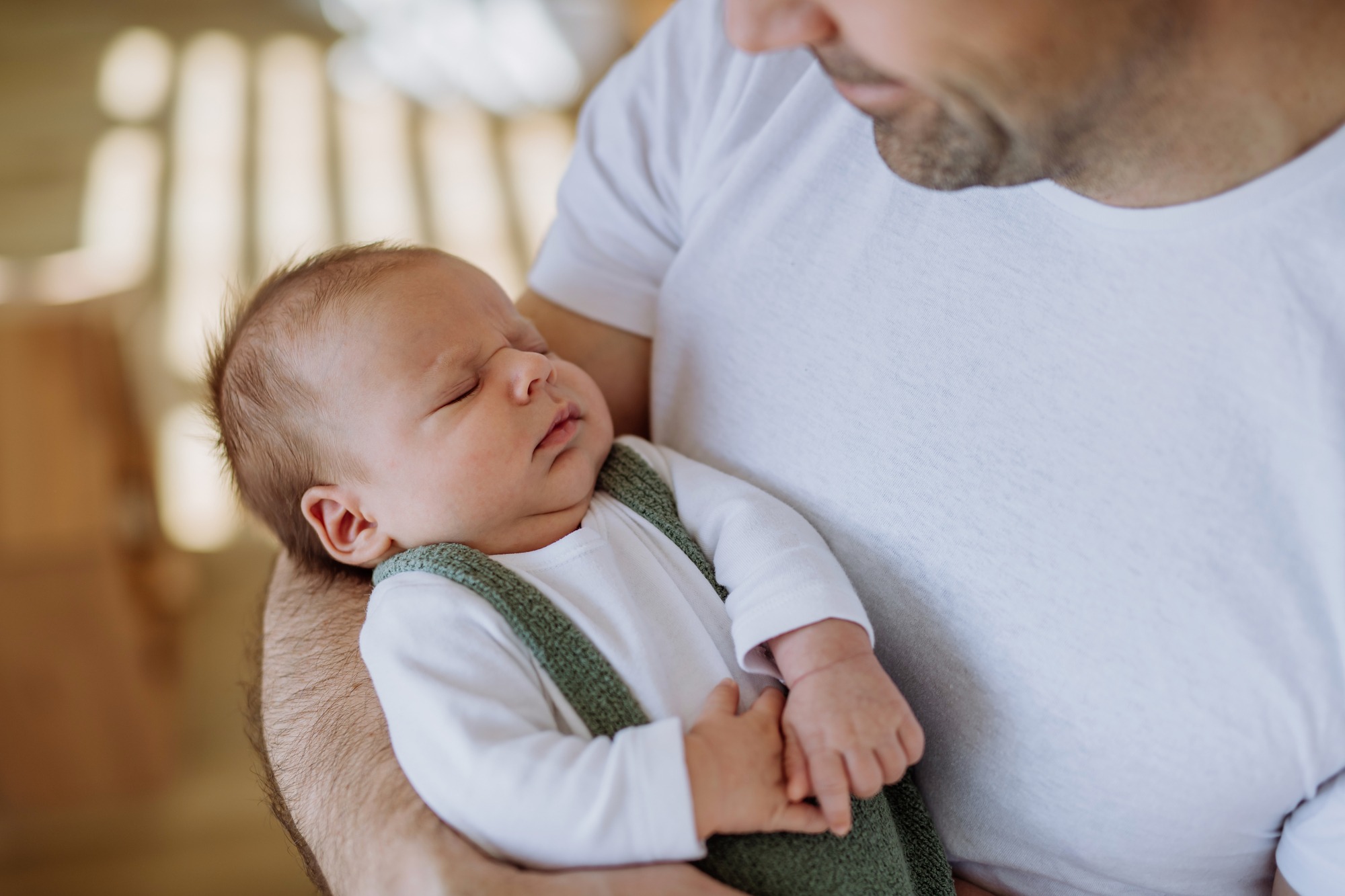
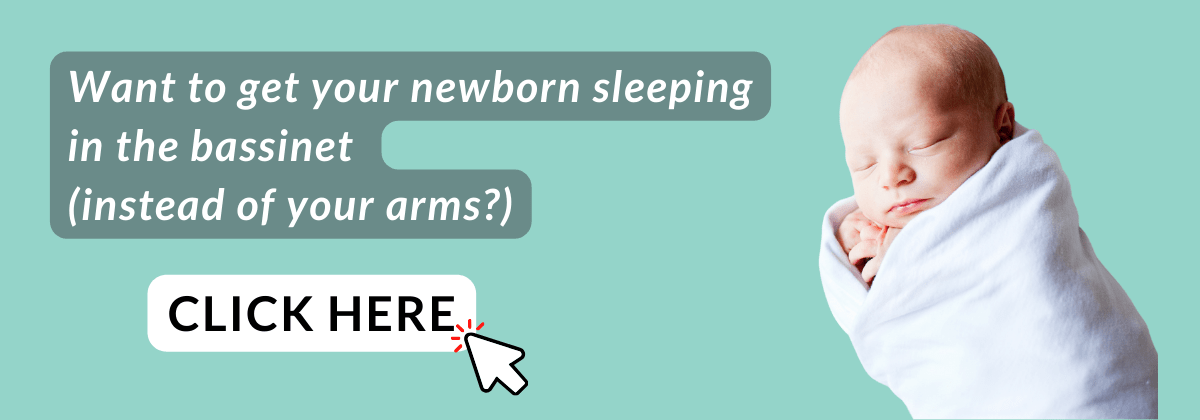
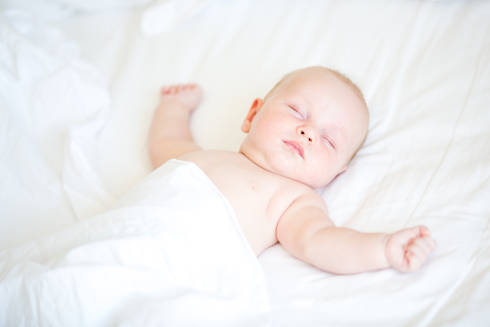




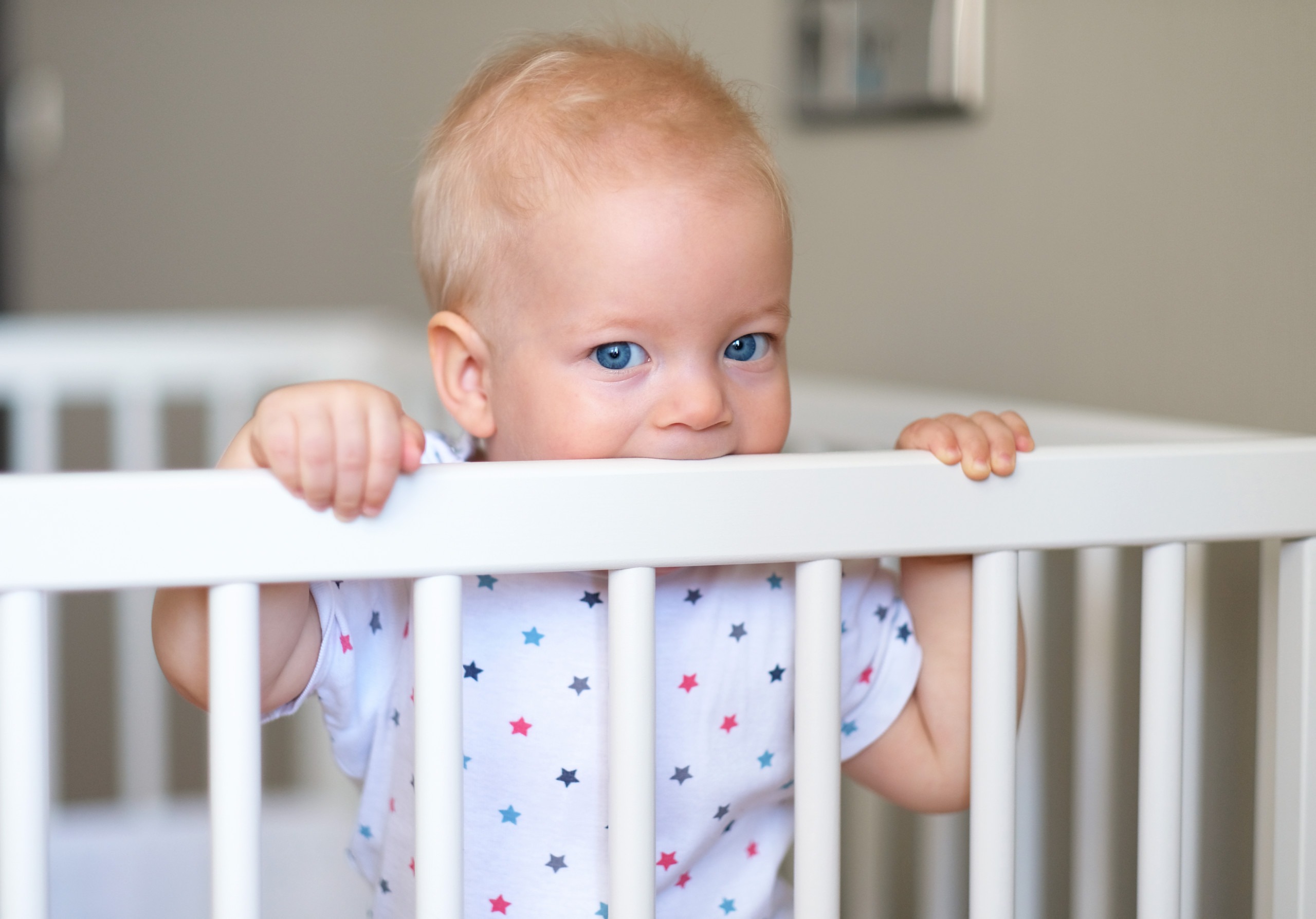



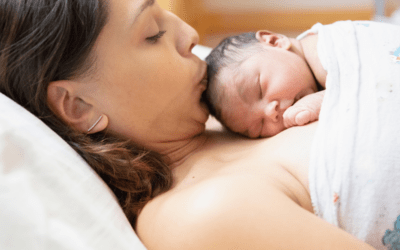


0 Comments